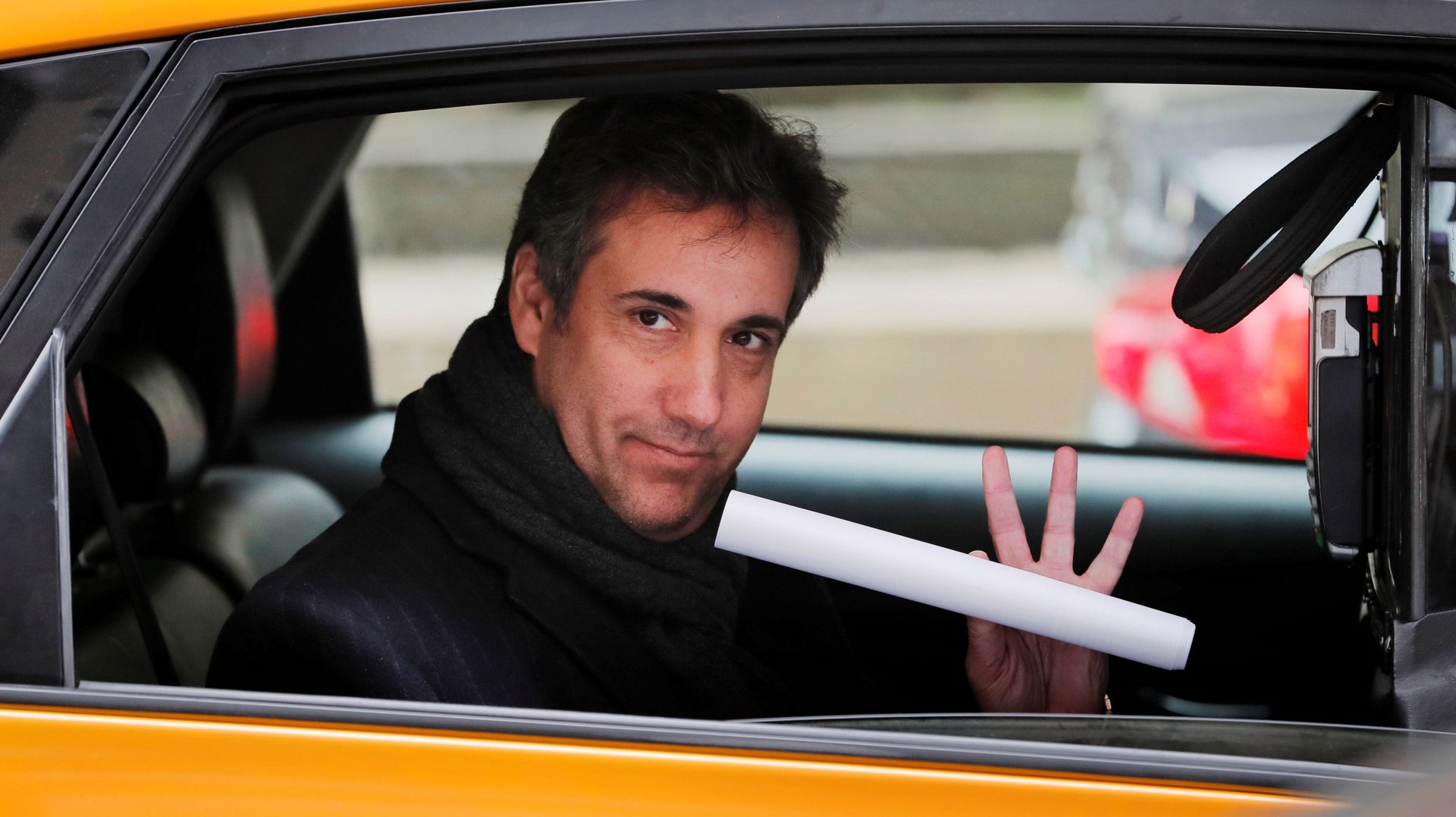The juiciest parts of Michael Cohen’s guilty plea
Michael Cohen’s messy personal finances and complicated arrangements to hide Donald Trump’s alleged affairs were laid bare by the Department of Justice today (Aug. 21) as he pleaded guilty to eight criminal charges.


Michael Cohen’s messy personal finances and complicated arrangements to hide Donald Trump’s alleged affairs were laid bare by the Department of Justice today (Aug. 21) as he pleaded guilty to eight criminal charges.
The US Attorney General in the Southern District of New York published its 22-page case against Cohen after Trump’s long-time lawyer pleaded guilty to the charges in it, including tax fraud, bank fraud, and illegal campaign contributions.
His confession that he broke campaign-finance laws, at Trump’s urging, may have the most impact on Trump’s ongoing presidency. Later, in a statement, Cohen’s lawyer Lanny Davis said his client “stood up and testified under oath that Donald Trump directed him to commit a crime by making payments to two women for the principal purpose of influencing an election.”
“If those payments were a crime for Michael Cohen, then why wouldn’t they be a crime for Donald Trump?” Davis added.
But the entire case against Cohen paints a picture of a man surrounded by fraud and duplicity, who seized financial advantage when and where he could find it.
The Birkin Bag brokerage
Cohen failed to report over $4 million in income, costing the Internal Revenue Service $1.4 million in taxes. Most of that income came from interest he charged for lending out taxi medallions, which he didn’t report to the federal government. But it also included some money he earned consulting on an assisted-living facility and approximately $30,000 in profit made in 2015 for brokering the sale of a Birkin bag.
The hand bags retail for between $11,900 to $300,000, the case notes. The popular, rare Birkin bags do have strong resale value, but it’s unclear how Cohen might have earned a $30,000 fee for brokering one.
A $14 million lie
Cohen lied to a bank—to the tune of millions of dollars—when he took out a home-equity line of credit that he ultimately used to pay off an adult-film star who alleged she had an affair with Trump. Cohen first failed to disclose an existing $14 million line of credit to a lender when he applied for a $500,000 home-equity line, then said the line had been closed.
Instead, the $14 million line was essentially overdrawn because Cohen had swapped it out for even larger loans, the plea says.
The National Enquirer
Individuals are prohibited from donating more than $2,700 to any candidate during a single election, and corporations prohibited from making any direct contributions. (Campaigns get around a lot of these rules with political action committees and other workarounds.)
Enter the “media company” that owns a “popular tabloid magazine” that paid a key role in suppressing information that may have influenced the race.
While it isn’t identified in the plea, the Wall Street Journal reported in November 2016 (paywall) that the magazine involved was the National Enquirer. The tabloid was contacted by two different women who alleged they had affairs with Trump, according to the charges against Cohen, both of whom were likely looking for someone to publish their allegations.
Instead, the Enquirer’s pro-Trump chairman (paywall) then contacted Cohen, and payments that essentially bought the women’s silence were made. Neither “spoke to the press prior to the election,” the DOJ notes.
The worst lines for Trump
Cohen “caused and made the payments described herein in order to influence the 2016 presidential election,” the charge sheet says of the payments to the two women. He coordinated with “one or more members of the [Trump] campaign, including through meetings and phone calls, about the fact, nature, and timing of the payments.”
The 100-article deal
The National Enquirer agreed to publish two cover stories on the actress known as “Woman One,” in the plea, who was identified earlier by the WSJ (paywall) as Karen McDougal. It also agreed to publish over 100 articles authored by McDougal, reportedly an aging and fitness column, and paid her $125,000.
A $35 reimbursement
Cohen presented a reimbursement request to “The Company” (aka the Trump Organization) for the payment made to “Woman Two” that includes a $130,000 payment, $50,000 for “tech service,” and $35 for a wire transfer fee.
The Trump Organization “‘grossed up’ for tax purposes” Cohen’s requested reimbursement of $180,000 to $360,000, and then added a bonus of $60,000, according to the DOJ’s suit. So he received $420,000 in total—plenty to cover the $35 fee.
A $35,000-a-month fraud
Cohen’s reimbursement for the payment to “Woman Two” came in the form of monthly payments of $35,000 that he billed the Trump Organization as part of a “retainer agreement.” The company accounted for this as “legal expenses,” the complaint says. However, “in truth and in fact, there was no such retainer agreement, and the monthly invoices COHEN submitted were not in connection with any legal services he had provided in 2017. “